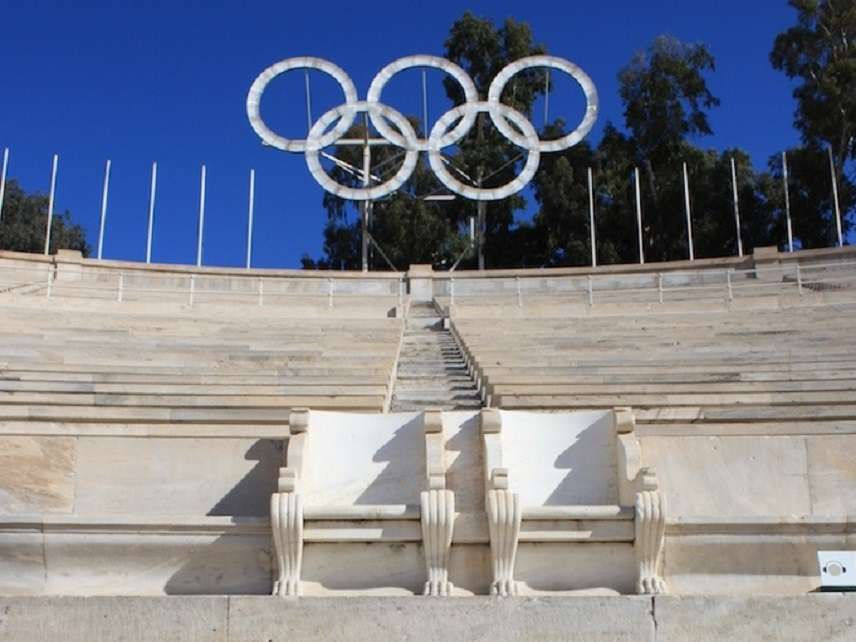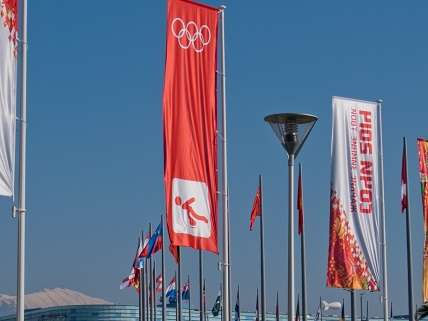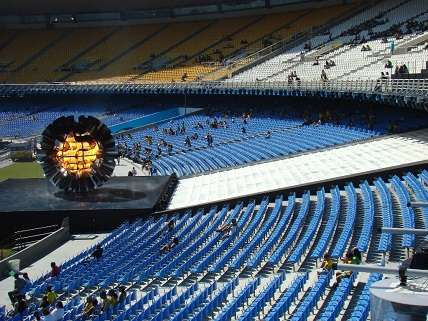5 Cities That Got F**ked By the Olympics
- OurStudio

- Aug 4, 2017
- 4 min read

Visit Greece/flickr
Host cities for the next two Summer Olympics have been finalized this week, Paris in 2024 and Los Angeles in 2028. They were the only two candidates for either Olympics. Both will be hosting the Summer games for a third time.
Several cities expressed interest but ended up dropping out because, well, hosting the Olympics is a shit deal. Take it from the organizers in these five cities. You might be certifiably insane to want to host an Olympics.
Athens 2004
Athens, birthplace of the ancient Olympics upon which the contemporary games are built, desperately wanted to host the modern centennial in 1996 (Athens was also the host in 1896), but lost out to Atlanta. Eight years later it hit the jackpot.
Preparation for the 2004 games marked the beginning of Greece's contemporary spending binge. The Greek government hadn't balanced a budget in nearly 40 years, but it got a lot worse after the Athens Olympics.
The games cost $11 billion, twice the original estimate, driven, in part, by gross mismanagement and last-minute preparations. Security alone cost $1.2 billion. Just six years after the games, more than half the venues built for the event were underused or empty. Ten years after the games, most of the venues were abandoned—unfilled swimming pools, overgrown stadia, and graffiti-laden monuments, a warning for any city contemplating hosting an Olympics in the future.
"I feel vindicated, but it's tragic for the country," Greek anti-Olympics activist Stella Alfieri told CNBC in 2010. "They exploited feelings of pride in the Greek people, and people profited from that. Money was totally squandered in a thoughtless way."
Sochi 2014

kenyee
At nearly $50 billion, the Sochi Winter Olympics were the most expensive in Olympics history, costlier than the previous 21 Winter games combined. No small feat, made possible with a big assist from rampant corruption, or, as Kremlin critic Boris Nemtsov put it, the "out-of-control, absolutely immoral behavior of the authorities."
A 2013 report by Nemtsov and Leonid Martynyuk, another political activist, estimated that $21 billion of the cost up to that time had been swallowed up by "embezzlement and kickbacks" to Putin's inner circle of businessmen friends. "The Games are nothing but a monstrous scam," he said at the time.
Nemtsov was assassinated in 2015.
The Sochi Olympics exacted significant human cost. Authorities evicted and rarely compensated residents from homes in the way of construction plans, something common for the Olympics games.
"The whole place resembles nothing so much as a Communist-era construction project," The Economist wrote of Sochi half a year before the games were set to open. "Cost, efficiency, nature and human lives never stood in the way of Soviet rulers who reversed Siberian rivers, built cities in permafrost and planted corn in virgin land—often to ruinous effect." Sochi was even worse, according to The Economist: "the amount of public money it will cost makes Soviet projects pale in comparison."
Rio de Janeiro 2016

Pics Won't Go Down Without a Fight/flickr
Protesters in Brazil took to the streets before the start of the 2016 Summer Olympics to demand the impeachment of President Dilma Rousseff and the prosecution of her predecessor, Ignacio "Lula" da Silva, who was president of Brazil when Rio was awarded the 2016 Olympics. Protesters got their way—Rousseff was removed from office at the end of August, just 10 days after the Olympics, and earlier this year da Silva was convicted on corruption charges.
The Olympics were not the primary reason for Rousseff's dramatic loss of popularity, but along with the 2014 World Cup, they helped illustrate how disconnected her government was from the general public. In addition to the demolition of poor favelas, or neighborhoods, the Olympics highlighted how willing was a government that considered itself populist to spend money on prestige rather than social services, even as the economy shrank.
The outbreak of Zika, and the government's perceived inaction to address it, cast a pall, making it a poorly-attended affair Cariocas, and Brazilians in general, will be paying for for a long time.
Beijing 2008

cmaccubbin/flickr
The International Olympics Committee probably favors undemocratic host cities because of the lengths they'll go to squelch protest, as Beijing did in 2008. On the eve of the Beijing games, Amnesty International released a report detailing how China used the Olympics as cover to crack down on dissent.
"The Chinese authorities have used the Olympics and the cleanup before the Olympics as an excuse to maintain and extend a draconian detention system that they had called re-education through labor," Sam Zarifi, Asia-Pacific director for Amnesty International, told CNN at the time. "What that really means is that they're punished through forced labor to be taught a lesson… and thousands of people who have ordinary complaints or demand reforms of the Chinese government have instead been rounded up."
China also used the games to restrict travel to Beijing and to conduct surveillance on political activists and even their family members.
Chinese Olympics organizers promised China would pursue human rights reform in anticipation of being selected to host the games, but that didn't happen. They could not even keep specific promises made before the bid process ended in 2001.
The Olympics cost China $42 billion, a record amount at the time. Government critics called much of the spending wasteful, but the Chinese government faced few if any consequences for its decisions.
Nor was the IOC fazed by China's failure to keep its promises to reform. It awarded Beijing the 2022 Winter Olympics. Beijing faced little competition, in large part because the huge costs kept other cities away.
Montreal 1976

Michael Vesia/flickr
The mayor of Montreal insisted their games would be self-financed. "The Montreal Olympics can no more have a deficit, than a man can have a baby," Jean Drapeau said at the time.
It took Quebec taxpayers 30 years to pay off the $1.5 billion debt for the "Big Owe," as the the olympic stadium built in Montreal was derisively called. The debt was paid off mostly with a special tax on tobacco. Quebec then managed a province-wide ban on smoking in public spaces and workplaces just a few months before the debt was paid.
In addition, 28 African countries boycotted these game to protest the participation of New Zealand, whose rugby team that summer had toured apartheid South Africa.
As Vice noted last year, the Montreal games should have been a lesson for other cities interested in the Olympics. Not likely. Paris and Los Angeles won't be the last suckers to go for the fool's gold.




Comments